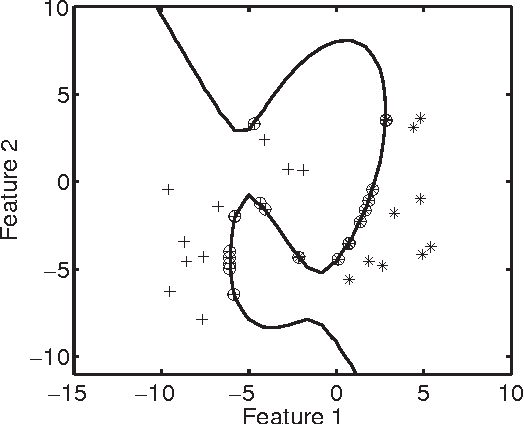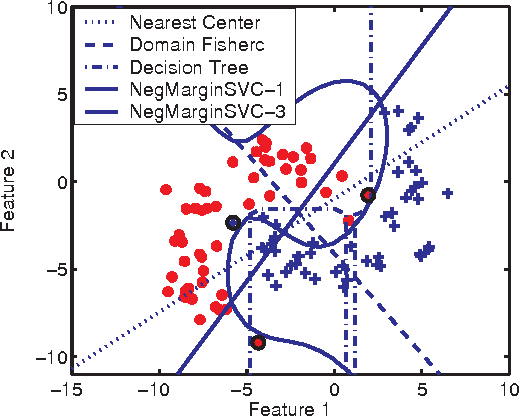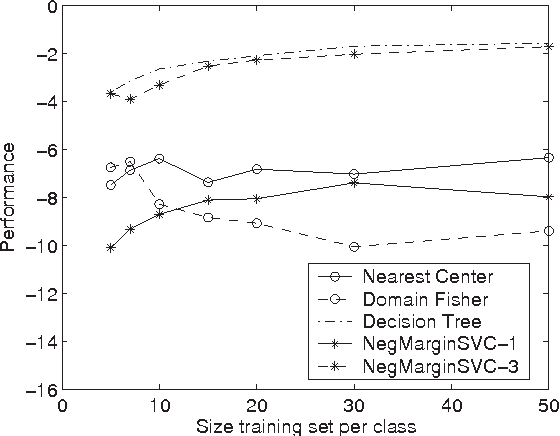Elzbieta Pekalska
Domain based classification
Aug 11, 2018


Abstract:The majority of traditional classification ru les minimizing the expected probability of error (0-1 loss) are inappropriate if the class probability distributions are ill-defined or impossible to estimate. We argue that in such cases class domains should be used instead of class distributions or densities to construct a reliable decision function. Proposals are presented for some evaluation criteria and classifier learning schemes, illustrated by an example.
Zero-error dissimilarity based classifiers
Jan 18, 2016Abstract:We consider general non-Euclidean distance measures between real world objects that need to be classified. It is assumed that objects are represented by distances to other objects only. Conditions for zero-error dissimilarity based classifiers are derived. Additional conditions are given under which the zero-error decision boundary is a continues function of the distances to a finite set of training samples. These conditions affect the objects as well as the distance measure used. It is argued that they can be met in practice.
 Add to Chrome
Add to Chrome Add to Firefox
Add to Firefox Add to Edge
Add to Edge